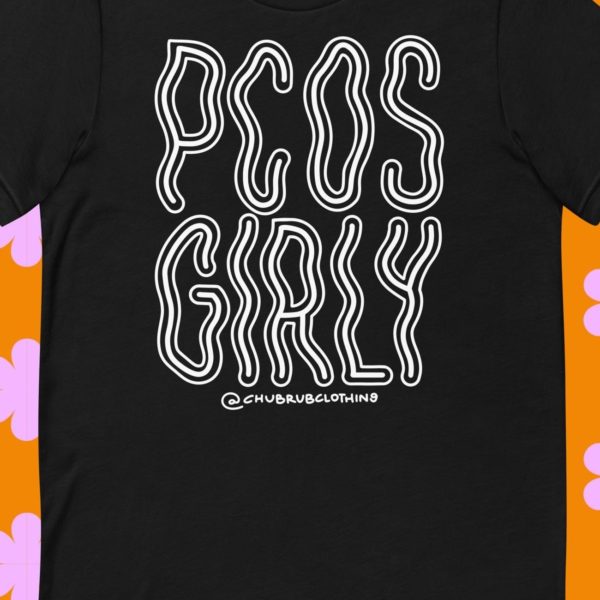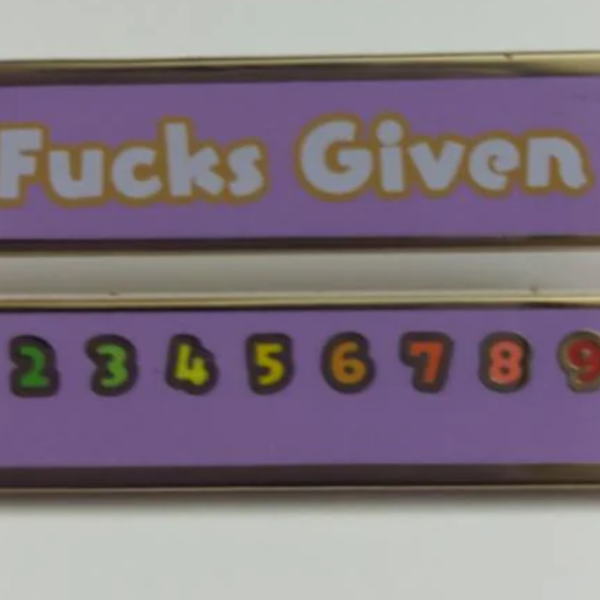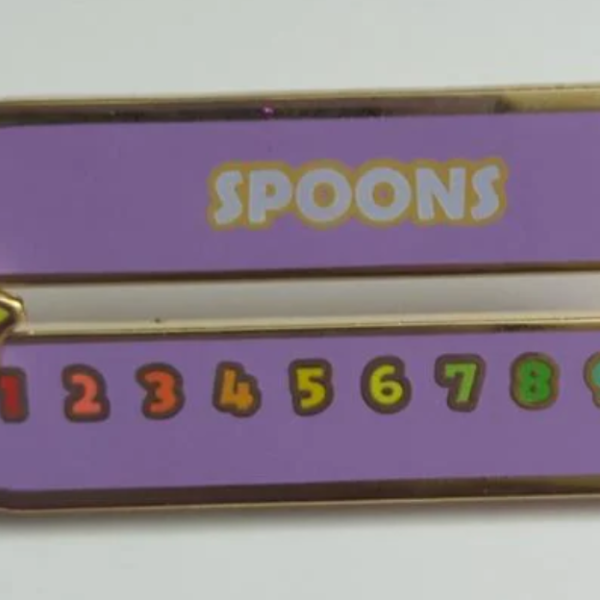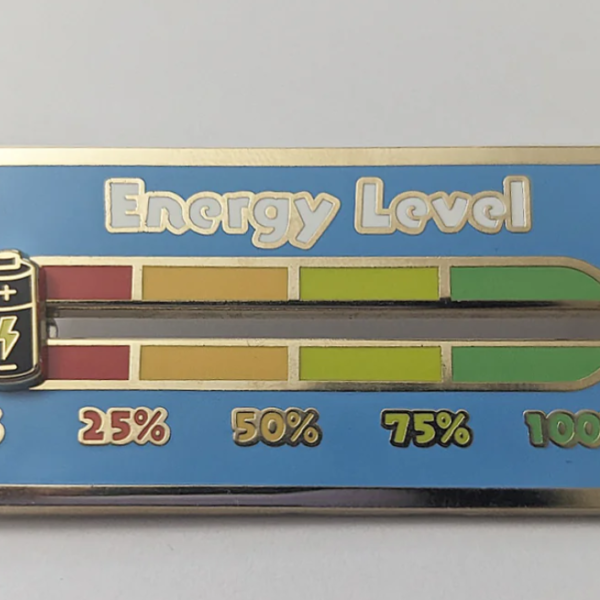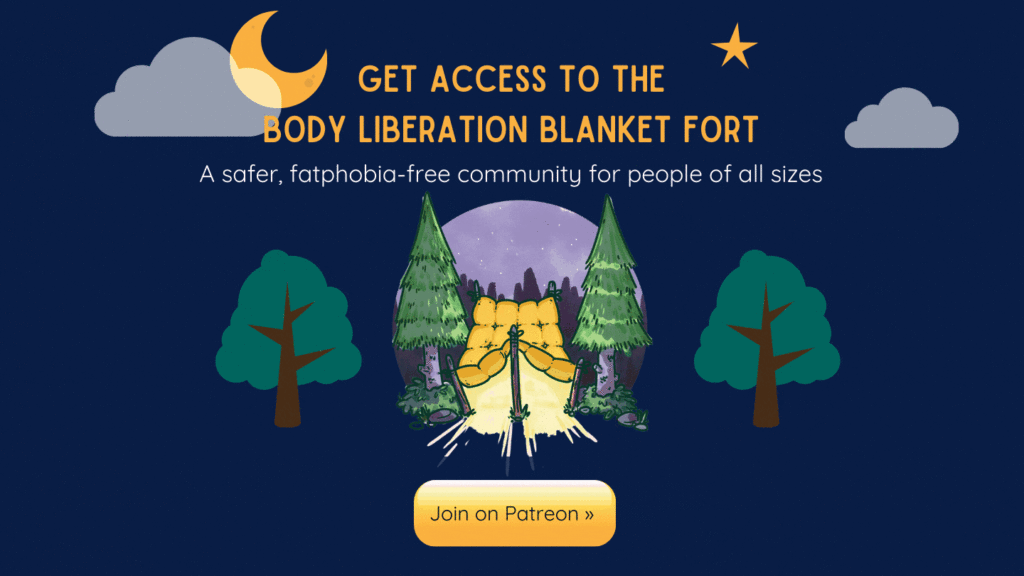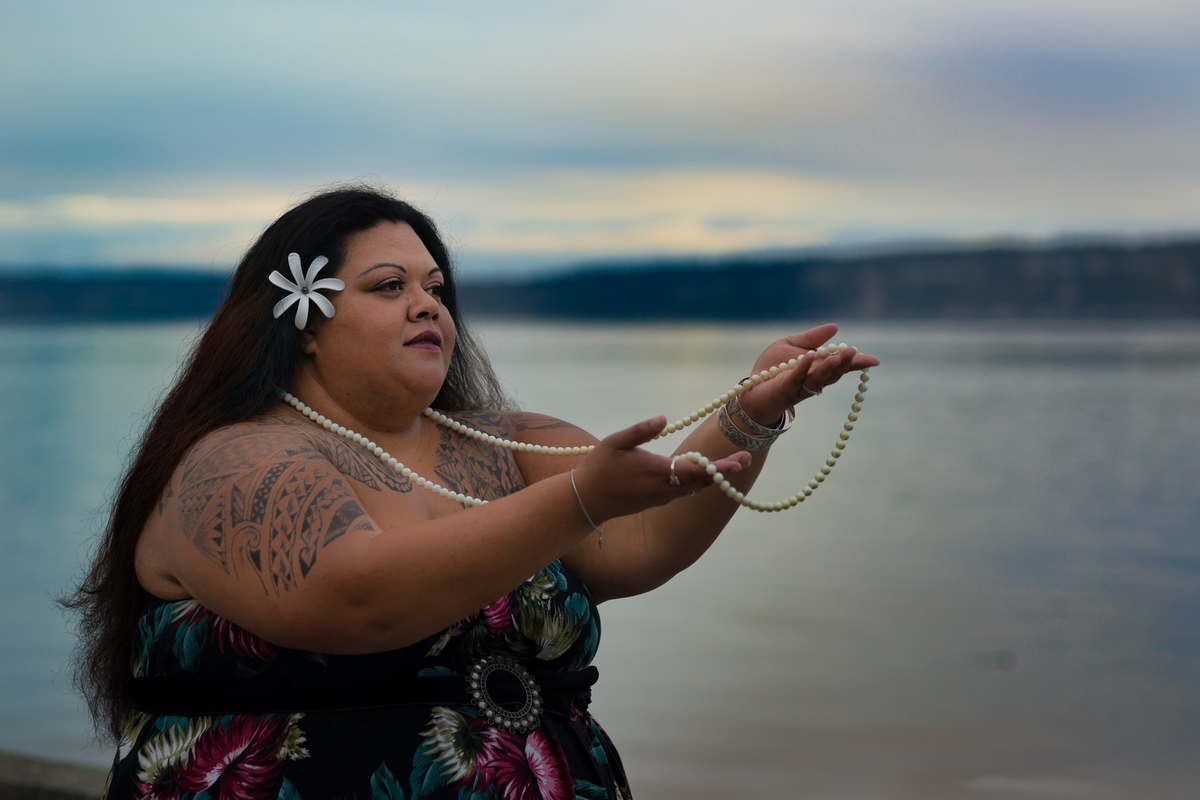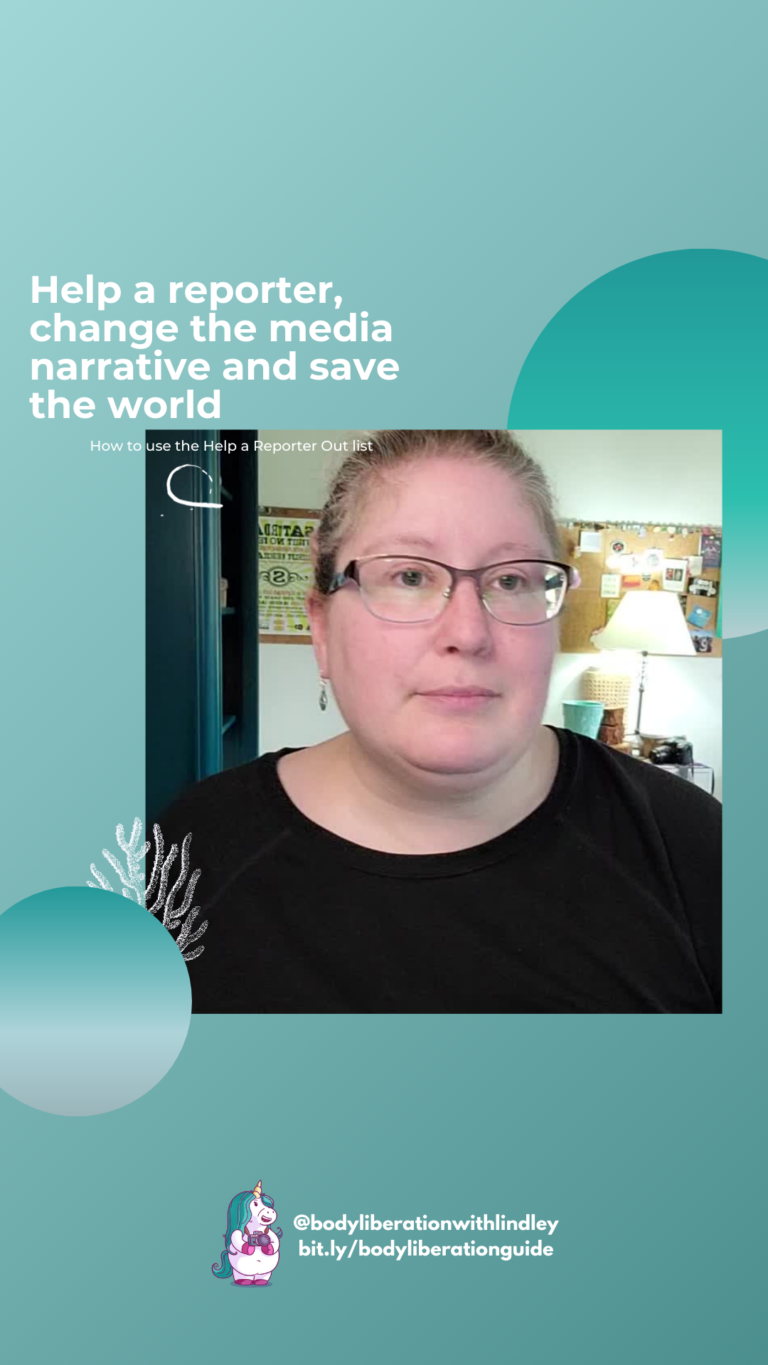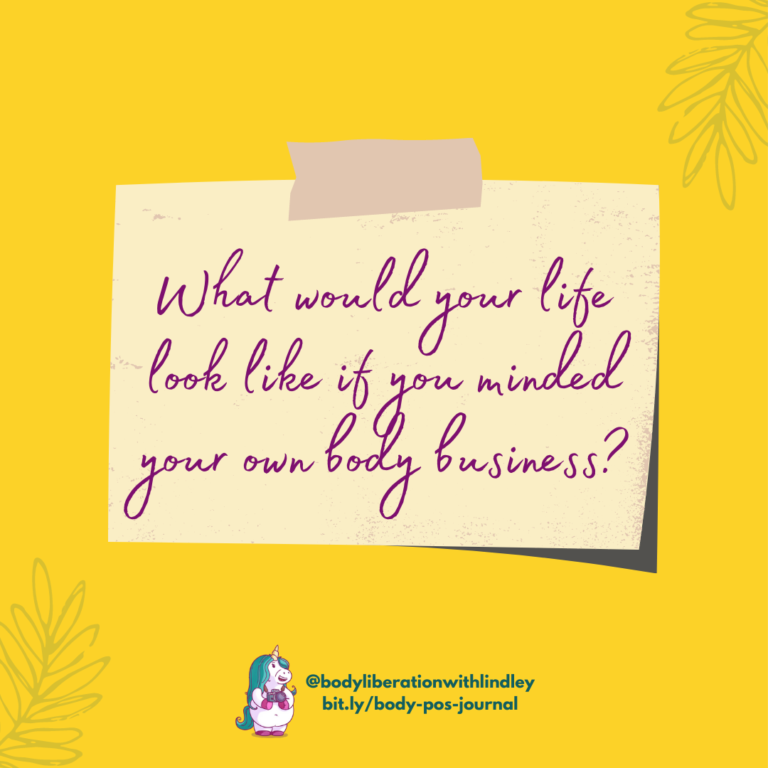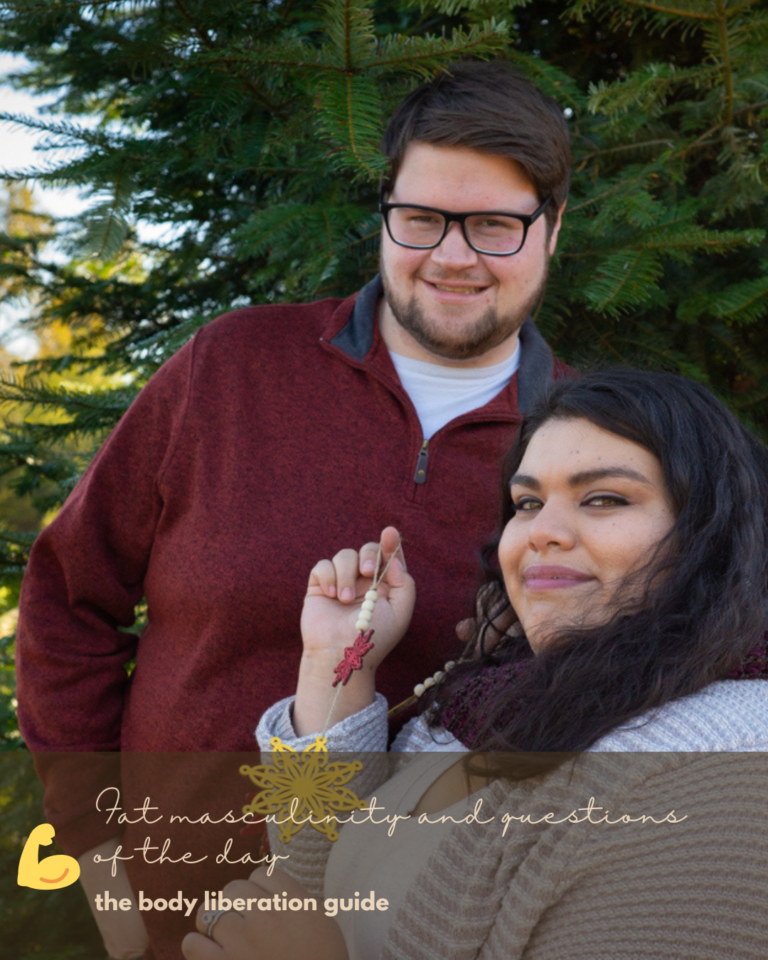Listen: Lindley on the Destiny’s Universe Podcast
One of the reasons I talk about vulnerability in business so much is that giving ourselves the grace and space to be vulnerable allows us to not expect perfection from ourselves or others.
When we give ourselves the grace of imperfection, it means that when we mess up — as we inevitably will, as people and as business owners — we don’t freeze and sink into shame. We can learn from our mistakes and move along.
When Destiny DiMattei, host of the Destiny’s Universe podcast, met to record our episode, we had a technical glitch and the second half didn’t get recorded. Rather than freaking out and re-recording then and there, tired and frustrated, we laughed about it, then scheduled another meeting to record again when we were relaxed and eager to chat again.
On this episode, we talk about:
- How body image, body shame and weight stigma affect mental health
- How my white privilege affects my body image + intersections
- Trolling and mental health
- How science changes what we view as “facts” over time
- Gluttony, religion and fatness
- Being a “drain” on the healthcare system
- The catch-22 of fat invisibility
- Being the fat community you want to see
Episode Transcript
Destiny: Hello, and welcome to Destiny’s Universe. As you take a look around, relax into the scenery, all are welcome here. As we float around exploring the intersections of identity, passions, interests, or hobbies, and those things that make us who we are. I know many intersections are shared by many people and individual things can be looked at directly as well. I’m here today with Linley Ashline. She does the Body Love Box, stock photography and the Body Liberation emails. And I am so glad to be here with her today talking about mental health and fat liberation and body liberation. These are both important topics to me as well, because I recently got into fat liberation and I’ve dealt with mental health challenges, but let’s just get right into it. Linley, if you’d like, you can tell us the community more about yourself and you can begin.
Lindley: Yeah. It’s such a pleasure to be here. So I’m Lindley and I have my fingers in a lot of different pies. So whenever somebody asks me, “Oh, what do you do?” The answer is really long. I am a body positive and fat positive photographer. And when I use the word fat, I always like to establish that I’m using it as a neutral descriptor for larger bodies. You don’t have to use it for yourself, but many people have reclaimed that. And so when you hear me use the word fat, it’s not an insult, it’s just neutral. But I run, like Destiny mentioned, I run the Body Liberation Guide newsletter, which is a weekly newsletter that has all kinds of things about body image, oppression, power dynamics, health at every size body image. I run Body Liberation Stock, which is stock photography for co commercial use. And I also do client photography, [unclear02:08], portrait and small business sessions. And I also do a lot of writing and activism work.
Destiny: Thank you so much. So a lot of you would probably already knew me if you’re listening to this, and so you know that I am a disabled person with mental health challenges, interested in fat activism and fat liberation. I’m all about using fat as a descriptor. And that’s one thing to expect from this podcast episode and more to come down the road, so I’m glad you’re for a ride. So what interests you about the intersection or what would you like to speak about with the intersection of body liberation and mental health? Let’s start off there.
Lindley: You know, there are so many avenues we could explore with this. And for me, this is very personal. I live in a body that is a very fat body, although it is not at the very fattest end of the spectrum of the natural variety of human bodies. I’m in what I call a large fat at body. In Lane Bryant sizing, it’s like a 28, 30, or maybe to four to five. And I also live with an anxiety disorder. And so it’s always sort of top of mind for me, both in my personal work and sort of in the micro sense. And then also in the macro sense, this how mental health is affected by living in large bodies for all people who do live in fat bodies. So, it’s sort of this spectrum of the personal all the way up to the cultural and political.
Destiny: Yes, I feel that. I’ve dealt with depression most of my life and also codependency, which I might do as a different topic altogether. And my hatred, even though I never showed it, but like, there was not necessarily like hatred, but shame in my body stemmed all the way from childhood, from bullying from a relative who meant only the best, and has truly apologized, but it left scars, plus societally and doctors and all that stuff. And then came my body changed, I thought I was always fat, but I found out it was probably like a few years before puberty when I started putting on weight. I also dealt with family dysfunction, so I see that a lot. So, I feel like this topic is so very important. I mean, many people say weight stigma can affect mental health, but I don’t see it looked at fully as much as it should be, so I’m so glad we’re having this conversation.
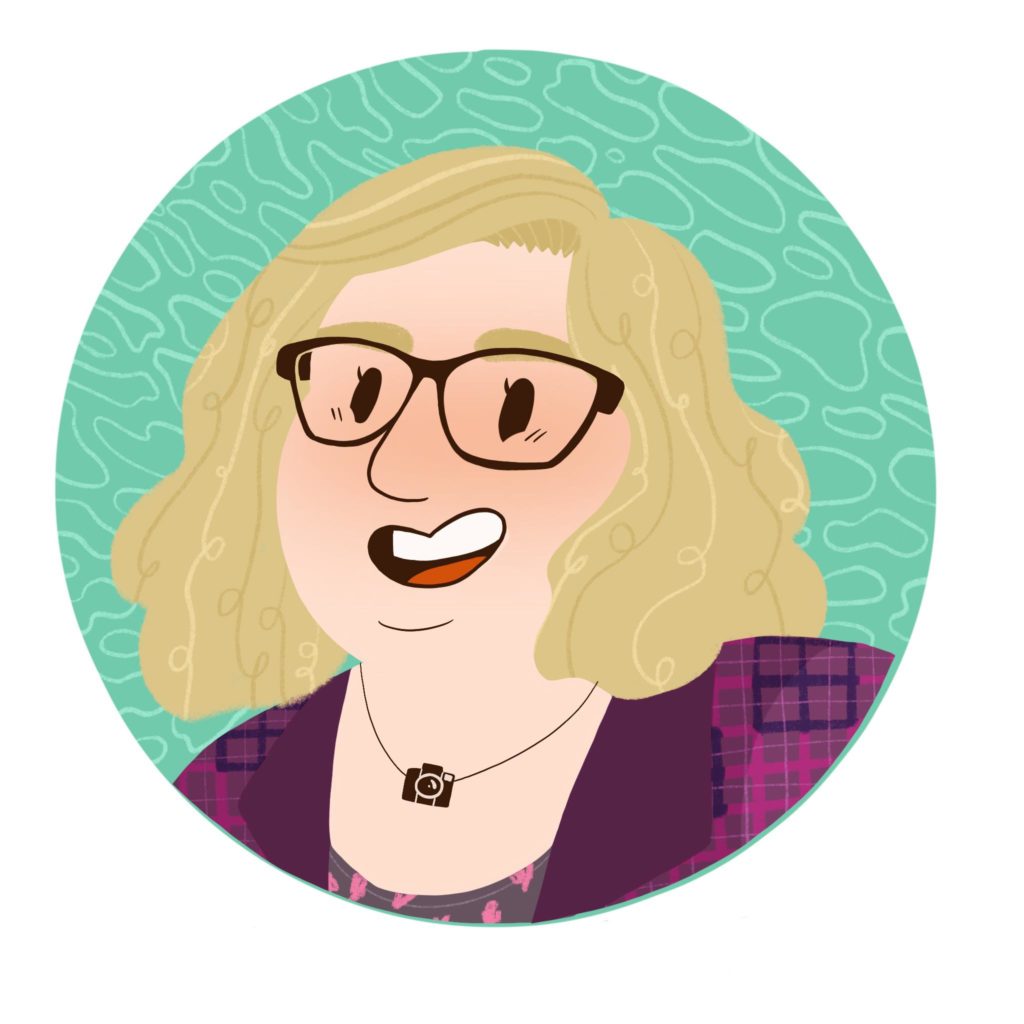
Every Monday, I send out my Body Liberation Guide, a thoughtful email jam-packed with resources on body liberation, weight stigma, body image and more. And it’s free. Let’s change the world together. Subscribe »
Lindley: Yeah, because body, you know, image not only is body image a really important component of our mental health, and of course, depending on the type of body do you live in, you’re going to receive different messages about how you should feel about your body and what your body image should be like. And that doesn’t just include fat bodies of course. That includes speaking of intersections, that includes black bodies, other bodies of color, you know, people with invisible disabilities, people with visible disabilities, people in the LGBTQ plus community. All of these things are multiplied, the more intersections that you… the more of these communities and populations that you’re in.
I’m a white woman, I’m a cisgender white woman. If I were a fat black woman with a visible disability or maybe a trans woman, I’m going to get a lot of different messages about how I should feel about my body than I do as this white woman. And that is going to in turn affect my mental health differently. So basically, people, the more of these populations that you’re in, the more mental health challenges you are going to be presented with. And your resiliency in dealing with these, or in processing those things and living with those challenges is going to vary by person. So you’re going to have some people whose body image and whose mental health is really good, despite these challenges. And then you’re going to have some people who aren’t, who that is more of a challenge for them. It’s just once again, sort of the natural variation in our bodies and our brains, how we are able to handle that plus our environment.
When we talk about mental health and fat liberation specifically, what immediately comes to mind for me is trolls. Because when I started speaking publicly about fatness, I of course started attracting trolls and that at different times has been more or less of a mental health challenge for me to constantly be having people spewing bigotry and hatred at me. But the thing is that too, again, partly because of my privileges as a middle class cisgender white woman, I have more mental health resources available to me. I have a support network of friends. I have mental health care. I have medication that I am able to access. And if I have more intersections, I may not have access to those things.
But for me, it’s still really challenging to my mental health as an activist to have people constantly trolling me. So, my solution was to limit comments. You can’t comment on my Instagram unless you also follow me. And most people aren’t willing to follow me just troll me, so that cuts down most of it. And so, mental health and activism together are such an important topic to you.
Destiny: Yes, absolutely. Exactly to everything you said, you made it straight out of a ballpark. And yeah, I’m relatively privileged myself. I’m white, I’m fat, which is one of my intersections. I’m partially blind, so I have somewhat visible disability and I’m asexual, so I’m part of the LGBT community, but in a rare way that most people don’t know about. So, it’s an interesting thing to think about. And even though I’m not like fully middle class, I think I’m closer to poor, I’m fixed income, social security disability; I still get Medicare Medicaid. I have the therapist; it’s just a matter of finding one who will understand my intersections and that’s the problems I’m facing in the moment. So I really relate to that. And I was thinking about like, I’ve worked with people in communities who have been reading stuff and realizing, oh, shoot, there’s true people out there who can’t get their affirming surgeries because people have weight bias and that’s affecting on mental health.
I think about all that different stuff, and I just feel so like, wow, there needs to be something done. One of the topics that is important to talk about is how life threatening it can be to be in multiple press groups and have mental health conditions. For me, when I was growing up, I had suicidal ideations. Not that I went through with anything, but I think about the countless lives that are lost in that way due to suicide because they didn’t have acceptance and what they needed to succeed, and I just think about that often. So yeah, thank you for sharing.
Lindley: Yeah. I believe I saw a stat the other day and I don’t have the source off the top of my head, but something like the biggest predictor for LGBT plus youths have suicidal actions is whether their parents accept them. So of course we get mental health messages from all over, but some of those messages are going to affect us more immediately and more strongly than others. Like I said, talking about trolling; like, I had a nasty comment on my YouTube this morning and, you know, whatever, I just deleted it. It’s fine. And I might actually start limiting comments there now that I’m getting comments at all. Because from a mental health standpoint, if there are troll comments in my spaces, other fat people are also seeing those and that affects their mental health too, not just mine, so I have a responsibility to keep my spaces safe.
But you know, it’s just some random dude on the internet who thinks I’m gross, like, okay. But when say a family member sits me down and says something negative about my body, or that they wish that my body was different or that I would change myself in some way to please them, that’s going to affect me a lot more strongly and a lot more immediately. And that’s going to activate shame responses and anxiety responses. And that is going to also mold my relationship with that person, because I don’t have a relationship with that random YouTube troll. He’s just a random dude on the internet. But I have a relationship with my mother, I have a relationship with my cousins, I have a relationship with my aunt and those relationships are formed by the messages that they give me about my body, which in turn affects our mental health.
I’m 41 years old. I am long out of my parents’ house, and again, I can choose to limit my interactions with folks who are giving me negative messages about my body, but not everybody has that privilege. Say I had a disability where I needed the support of my family and I needed to live with them, then I’m receiving messages about my body, I might be receiving messages about my body all the time. And so, that meant might be something that I can’t escape. Or say you work in a doctor’s office, let’s go with dermatology because dermatology is really susceptible to this. Say I’m a receptionist in a dermatology office. And there is a TV in the waiting room that plays nothing but advertisements for cosmetic surgeries and anti-aging creams and all that weirdo stuff that a lot of dermatologists offices push I’m taking in those messages all day, five days a week, or however many days I work that week. What is that going to do to my mental health, and my conception of myself?
Destiny: Yes, absolutely. And a lot those things aren’t usually thought about. And that’s what I try to explain to people; it’s different when it’s someone closer to you. Even if it’s just like, hey, I’m concerned for your health. And you try to get the words to say what you want to say. But you don’t always have them at hand because then you got to bring in the facts and then things get jumbled up in my head because I’m not an encyclopedia of health [unclear14:41]. You know, I can pull some things from my memory, but I want to make sure I get them right, so a lot of times it leads me frozen.
Lindley: Yeah, yeah, yeah. I mean, we shouldn’t have to be walking debate teams just to be treated with basic respect and humanity.
Destiny: Yes, absolutely. And that’s why it’s important to also find communities of your own.
Lindley: Yeah. And I want to touch right quick on that what you brought up that moment of, oh no, I need to defend myself. Because yeah, not only is that – that’s really hard in the moment because we’re not walking in encyclopedias, and most of us aren’t academics or people who would just be able to spout facts and figures. But the thing is that that doesn’t actually really matter because our beliefs around, and when I say “our” I mean culturally. As a society in 2021, our beliefs around bodies and weight and body size and ability, their beliefs. It’s a matter of faith at this point. It is the church of feminist. It is the church of “health”. I love my mother very but my mother has very different beliefs about what my body should look like than I do.
New at Body Liberation Stock
And when my mother sits me down and gives me a come to Jesus talk about how she wishes that I would lose weight. And I say, show me the peer reviewed study where a significant number of participants were able to lose more than 10% of their body weight and keep it off for more than five years, and then I’ll consider that method. And the thing is that doesn’t exist because we don’t have a way to make fat bodies thin in the long term. But the thing is, I’m talking about science, she’s talking about faith. These are two different conversations. We’re not talking about the same thing. She is talking about the faith, the belief that thinness is superior and must be worked towards at all cause, and that people who live in fat bodies have negative traits. And then if you get rid of those negative traits, then you will be thin at as evidence of positive traits.
So when my mother tells me that she wishes that I would lose weight; what she means is that she wishes that I would gain willpower. She wishes that I would work harder. She wishes that I would be a better person. And again, when we talk about mental health, what kind of messages are those to receive? So, it’s really important that we understand that beliefs around bodies are beliefs. They’re not science, they’re not facts, they’re not evidence-based. So not only should we not have to be ready to defend ourselves with facts and figures, but defending ourselves with facts and figures usually doesn’t actually work because we’re not having the same conversations.
So, it’s essentially the same as say, oh, say my mother were very religious and I were an atheist. This is a fictional scenario. And my mother we’re trying to convince me to go to church and I’m going, “Well, why should I go to church because there isn’t such a thing as a God?” Like, you can’t really reconcile those two things. And this conversation about bodies is the same way. Until we as a culture are actually looking at bodies from a reality based standpoint, in an evidence based standpoint, we’re going to be having two different conversations. And I’m just no longer into having that conversation about belief. I’m not interested in your church of thinness. I’m not interested in your worship of health as expressed through thin youthful white bodies. But the messages that we’re getting, we’re not just getting, you should lose’ it’s, you should stop being a slob. You should stop being gluttonous. You should get some willpower. So when we say thin and fat, there’s all these other things attached, and so it’s not just about the bodies, it’s about personal traits.
Destiny: Yes. And I was thinking about that as you were saying and I’m thinking, that seems like it’s kind of the way it is. But then the sad thing is some people who are close to me, think that I’m anti-science and wonder if I’m being brainwashed by… I’m like, no, I discovered this on my own. I looked into it on my own. So while I didn’t even talk to people about it, you know, it’s my discovery and it’s real, you know?
Lindley: Yeah. And this is the hard thing about science, because science is always evolving, it’s not the actual facts, it’s not that reality changes, but the way we observe reality does change and hopefully progresses over time. But that’s why I will occasionally pull out that, okay, show me the peer review study that says this and this, because like I said, we have these beliefs and one of our beliefs about bodies is that science backs us up in that thin bodies are better and healthier. But the thing is that that science is not actually there. So it’s really hard because then, yeah, the people who want to talk about science often, it still often comes back to what everybody knows that thinner is healthier. Everybody knows. But then when you look at the actual science, it’s not there. So yeah, that’s why I occasionally pull out the peer reviewed study because often when people are like, well, let me link to this article that says that thinner is healthier. It’s an article based on a study that was actually a meta study that was done 48 years ago, that didn’t show what they say. It shows anyway.
Destiny: Yeah. And I’m not good at like, I can read articles and stuff like that. And I try to read peer reviewed studies, but some of them I don’t even have access to, but I’m not very good with statistics or whatever. So, yeah, I totally relate to that. So it’s like, I wish I could argue them out of their hole if I were to be able to unpack a study and bring it to them and be like, this is what it’s really saying. This are the flaws, all that, but I don’t have that complete knowledge in me, although I did take like an entry level statistics class, and I have an associate’s degree in psychology, o that’s the most of my college education.
Lindley: Oh yeah. I’m not an academic, I’m not a scientist. I mean, of course I could acquire if I wanted to pick it up as a hobby, you know, I could acquire the ability to really parse research. But the thing is that again, most of the time people who want to argue the science with me are still arguing belief. So they just want to link to a men’s health article because somebody wrote that article and that’s their proof. And again, it mentions a study, but then you look at the study and it doesn’t actually say what the author claimed it does anyway. But even so, again, it’s two different arguments. So yeah, I could pick it up as a hobby, being able to parse this research and I could dig in and do that myself, but not only should I not have to, because the thing is that even if fat bodies were inherently unhealthy, even if living in a fat body were actually evidence that you’re a bad person, I would still deserve to be treated with basic respect and humanity.
Destiny: Absolutely. And I think the average person would agree, but they don’t see the harm that’s being done to us as fat human beings. Like, I know the one relative that said those things, you know, he would even agree to it. And I’m really close to him and I know he cares, but it’s just fearful for my future and all that. But it’s just a matter of having faith. And if you can have faith, and this is what I would say to anyone who’s listening to this who has relatives listening to this, have them listen at least to this part. If you can’t have faith in health at every size and fat activism, if you can’t even get yourself to read it, at least have faith in your loved ones that they know what is best for themselves.
Lindley: Yeah, exactly. And this is one of the big mental health traps too, I think because not being believed, it can be really bad for your mental health. I’ve had people not believe me about my clothing size before. like, oh, well, no, you can’t wear a size that big. Would do you want to look at the tag in my jeans?
Destiny: Yeah, totally. And I’ve had people think that I was like being brainwashed or using it as my beliefs as an excuse or this or that, you know? So I just think it’s important for people to know as they listen, trust their people. You know, your loved ones and that they’re good people and you know them in some level. And I know some of it comes from fear and people’s own insecurities, but just trust us when we say we know what’s best for ourselves and we’re journeying.
Lindley: Yeah. The concepts of choice and excuses are so fascinating when it comes to fatness, because if we fat folks chose this, if I am a person in a thinner body and I can believe that people who are fat chose that, then I can believe that fatness is a choice that I too can make or not make. And so, all I have to do to not be treated the way fat people are treated is just not to choose to be a fat body. And so, it’s a way of displacing discomfort and kind of whistling past the graveyard, I guess, because if I can believe that people choose that, then I don’t feel any obligation to change the way that I treat fat people or that other people treat fat people because after all, they chose to be treated that way.
And of course, that’s nonsense because who chooses to be treated poorly? Nobody. But also this concept of excuses is also really interesting because even if I chose to be in a marginalized body, even if I chose to be fat, even if I were making excuses for not being thin or for not doing the things that people think causes thinness, even if I were all the things that we associate with fatness; gluttony, laziness, poor decision-making, poor morality, you know these things, I don’t need to list them all. But even if all those things were true, and when we’re talking about friends and family, you know all those things aren’t true about me because you know me.
But even if all those things were true, it wouldn’t mean that I didn’t deserve clothing that would go on my body. It wouldn’t mean that I didn’t deserve healthcare. It wouldn’t mean that I deserved to be treated poorly. And so, these things are ways that we displace or discomfort with learning that other people are oppressed, into the realm of personal responsibility. Like if I can make it something that I don’t have any part in, because these people chose this, then I don’t feel obligated to change the way that I treat other people. And especially when it’s a friend or family member of yours, that’s a really crappy thing to do to them. Even if I were a serial killer, which is something that I chose to do I mean, I’m not a serial or killer, but like if I were, I would still deserve healthcare and I would still deserve clothing that went on my body.
And I’m not saying that fat people have done anything wrong, like kill people, but we don’t as a society, at our best at least, we don’t deprive other people of basic human necessities and care because everybody deserves those things. And again, even if it were a choice, even if my fat body meant that all these things were true about me, like I will still deserved to go to the doctor and get healthcare. I was still deserved to be treated well by my family.
Destiny: Absolutely. And then as you think of gluttony, that’s another thing to dispel. Gluttony, isn’t just eating more than normal. I learned about it y’all, anyone who’s faith-based, or who has grew up in the Christian faith should read Fat and Faithful by Jane Nicole Morgan. She talks about gluttony being a thing that harms your neighbor. So basically, like eating to the point of being harmful to someone else. So, take a dozen donuts. Say you buy a dozen of donuts from a donut shop for yourself, that’s not gluttony. If you’re at a gathering and there’s a dozen donuts, that’s supposed to be shared and you’ve already had one and you take another, and maybe someone hasn’t had one yet, that’s gluttony. You know, there’s a difference. Or eating at a place that does harm to the employees if you know that, for instance; those are examples of gluttony.
It’s something really to think about how there are so many misconceptions caught up in so many things and they’re bad for your mental health. Like I used to think I was gluttonous. And yes, had I done some gluttonous things in the past? Yeah. I mean, I’m pretty sure people have been that way because of like food and security thoughts or disordered eating or whatever the case may be.
Lindley: Because they’re human.
Destiny: It doesn’t make more bad people and we still deserve respect, and I work to be better at it every time, you know, try not to do those things. So, yeah.
Lindley: Yeah. I have seen an argument that gluttony is more about resource consumption than specifically food. I mean, although it can also be food, but on a larger scale. I saw a news article the other day, and I don’t remember the context, but it was something about thousands of pounds of produce being thrown into a garbage truck because the person or the small business that was trying to distribute it didn’t have the proper licensing to be set up where they were in whatever city this was in. And so, thousands of pounds of food that was meant for low income people just got thrown away; that’s gluttony. That’s resource consumption that deprives, or at least resource consumption in the fact that that can’t be used now. That’s directly depriving other people of food, like that’s gluttony.
And I know we don’t think about it that way. We think of like eating the whole pint of ice cream, but resources that are consumed wastefully in a way that deprives other people of them, I think that’s really the true definition of gluttony. And it’s something that – it really forces us culturally to take a hard look at ourselves because what do we consume that deprives people in other countries of things like living wages and fair working conditions and food and housing. And I think in the United States, we have a real problem with gluttony as a culture. And of course I am part of that system; every everyone who is part of that system is part of that. And we can individually make different choices, but culturally, if we want to not be glutinous, we have to reprioritize.
So I think to come back to fatness, I think this is one of those times when fatness is used as scapegoat because if we can look at fat people and go, well, they, they eat too much, they’re gluttonous. Not only do we know that scientifically that’s not true; fat people and thin people eat about the same types and amounts of food statistically, and we have studies on that. But if we can displace systemic issues onto individuals, it absolves us from doing anything about those things. If I can say, well, that person over there is gluttony because of what I think about what they personally eat, I can avoid thinking about the components of my cell phone and what making that cell phone has done to a living country. So, wastefulness I think is really the key component of gluttony.
And if I am nourishing myself, I’m inherently not being wasteful. That’s not the same thing. But to bring that back to mental health too; what does it do both to a group of people and to individuals within that group to be a societal scapegoat? Of course that’s going to affect your mental health. You have things like the over consumption that capitalism occurs, you know, being blamed on a specific group of people. And so when people see your body, they automatically think bad things about you. What must that do to your mental health?
New in the Body Love Shop
Destiny: It brings shame, isolation, stigma, all of that. I think about else and like once in a blue moon I’ll be somewhere and I’ll catch a bit of a movie or bit of something where the metaphor of fatness is gluttony or all these negative stereotypes, and it’s just saddens me. And the thing is, when you’re scapegoated, when you are part of a scapegoated group, it’s almost like feeling like you have to fight to prove that you’re so more than that.
Lindley: Yeah. I mean, and it’s in every aspect of life, but of course the workplace is a really easy example. Part of the reason I left the corporate world to start my own business was that no matter how hard I worked and no matter how good I was, I was treated like I was incompetent. I was treated like I was a burden or like I was a problem. And the thing is that, it’s really easy to sort of gaslight yourself about that and think, “Well, maybe I was a problem. Maybe I didn’t do enough.” But I was lucky enough that in one of these jobs, these corporate jobs, I had metrics where I could prove how wildly successful I was at what I was doing. And so whenever I start to doubt the way I’m being treated, I can look back at that and go, I wasn’t being treated like the star performer that I actually was by the numbers.
Most people who are marginalized aren’t lucky and privileged enough to have that kind of proof. But it’s just always being treated like I had to work six times as hard and be six times as good as my thinner counterparts. And I want to recognize too that as a white lady, I still had a significant amounts of white privilege in these situations and an able body privilege and lots of higher education privilege, so I want to acknowledge that had I been in multiple marginalized populations, I would’ve been treated even worse. But always having to be twice as good, it does take a toll in your mental health because you’re always struggling to prove that you’re more than your body.
Destiny: Yeah. I mean, being disabled and fat, I can relate to that too, and lower income. I mean, growing up, I always tried to position myself as the good girl, like the nice one. I felt that’s what I had to be. Like, I wanted to not be a burden. I still have moments of worrying about, am I being a burden to my friends because I’m more income than some of my friends, they’re working people, and other things too. But like just fear of being a burden, you know, dealing with condescending doctors and yeah.
Lindley: And specifically in healthcare, we are considered a burden. We are considered a drag on the healthcare system in way that, you know, no one looks at say snowboarders or people who jump out of airplanes.
Destiny: Or football players.
Lindley: Yeah, or football players – and says you’re a drain on our healthcare system. How dare you? And again, to come back to the concept of choice; extreme sports or playing football, these are things that people are choosing to do. And I’m comparing these deliberately because people do see fatness as a choice. No one is looking at these populations that are more highly valued and saying you’re the burden, you’re the drain. Whereas, let’s look at COVID-19, the pandemic that as we record this is still going on. And there have been all these ridiculous scare articles about what a burden and a drain people in fat bodies have been during this crisis and how much more likely we are to get COVID 19 or to die of it. But when you look at the research, none of the research that has been done backs that up. In fact, people who are in the… I’m using this term only because it’s used in the research. People in the overweight category have better health outcomes from COVID and are more likely to survive, but you don’t see that. What we’re seeing is only things that reinforce that narrative of being a burden.
Destiny: Yep. And it brings a lot of worry, shame. I know when I first found out about COVID 19 and I saw the No Body’s Disposable campaign as like, well, shit I better jump on that because if I were to get COVID, I’m large fat, closer to super fat, I wouldn’t have as much resources. Thankfully of loving family, but I have to a advocate for myself really, and that’s a hard thing for me to do in general, so yeah.
Lindley: Yeah. And we expect people in marginalized bodies to be perfect advocates for themselves all the time. And we go to the doctor and we’re treated poorly and then people are like, why didn’t you report them? Why didn’t you stand up for yourself? Why didn’t you do X, Y, Z? If I were in that position of, I would do X, Y, Z. I would throw a punch and walk out and screaming and then immediately report them to the State. And of course, again, this is sort of whistling past the graveyard. Like, I wouldn’t be treated that way because I would make different choices. But in that moment, not only are we constantly forced to advocate for ourselves, in from everything from restaurant seating to healthcare, to chairs in offices that we can sit in, to appropriate PPE protective equipment on the job, to clothing that fits this.
Not only are we constantly having to advocate for ourselves just to survive, but there are always, you know, whenever you talk about that, you’ll be met with, well, here’s what I would’ve done. That is again, people sort of displacing that discomfort with stigma and oppression back onto the individual. Because if I think that, I would handle it differently, then I don’t have to feel like I need to advocate for better care for fat people or better access. Because of course I would just do it differently, and thus, I wouldn’t be oppressed in that particular way, which is very silly, but it’s just something that we humans do. But again, not only what does it do to your mental health to be constantly having to advocate for yourself, but then to have people be like, well, you just did it wrong. You just didn’t advocate enough. You just advocated wrong. You just didn’t use the right words.
Destiny: It’s gaslighting, really. And to think about this; like it’s also a nerve-wracking thing when you first come into the journey of trying to accept your body. I mean, I had to basically teach my therapist about a lot of this stuff. It affected my mental health, like having fat phobic people in my life, having societal fatphobia, or anti-fat bias. And it’s not like they’re intentionally, like I know the people closest to me they’re like, we accept you as you, we just want you to be healthy, but it’s just like, they don’t get it fully, even though they try to. And things have gotten better, I’ve set boundaries things, but it’s a part of my politic because now I’m not afraid to talk about it. Like, I still have a bit of fear, but I fight through it. I have words to describe what I’ve been through now. Before, I didn’t have the words to describe, that’s why I would always push it to the back of my mind – just not deal with it.
Lindley: Yeah. And I think that’s why part of why community is so important because at the time when I discovered the Fat Acceptance Movement a long time ago now, but I didn’t know that other people had similar experiences until then, and I didn’t have the words and the vocabulary to talk about it. And I didn’t have any support to talk about it either. And again, I’m very privileged. I have the ability to talk about it without jeopardizing my career or my family, or my physical safety and not everybody has that. And you have to put your own protection and safety in livelihood first. And so, you’re the only one who gets to decide how much you want to speak out about things, or how many boundaries you can safely set. But again, constantly having to do that, it just takes a toll on your mental health and it affects what battles you’re willing to fight because you only have so much energy. Anybody only has so much energy, and when you’re constantly fighting small battles, you have that much less energy for the big ones.
Destiny: Yep, absolutely.
Lindley: Yeah. And I want to come back to… I lost my train of thought a little bit, but I want to come back to this concept of choice and of healthcare. Because again, if I can blame poor healthcare outcomes on the individual you know, this surgery didn’t go smoothly because you were fat, we’re not giving you knee surgery because you’re fat, it’s such a catch 22 because fat people receive poor healthcare, mental and physical. And then we’re blamed for having worse healthcare outcomes in a way that when it’s not an oppressed population, you just don’t see that as much. Like nobody would look at a building that wasn’t built correctly and blame the building. You would blame the construction workers, or maybe the architect, depending on what went wrong.
There was a huge condo building in Florida that that collapsed not long ago. It was really tragic. A bunch of people died. It was awful, but the point is that nobody… they’re now investigating what went wrong in the building that it just collapsed during the night, and nobody in the media coverage, nobody has blamed the building. Nobody has said, “Well, that building just chose to be built poorly.” And of course, buildings don’t make choices. They’re not human beings. It’s not a perfect analogy. But it’s just wild the way that fat people get treated poorly, and then we’re blamed for being treated poorly. And I think it’s very important to keep that blame where it belongs, on the people doing the crappy things, on the systems that make us feel bad about ourselves, on the systems that oppress us especially when it comes to a healthcare context. But even in a family context, you know, when people say we’re just worried about your health.
Okay, you’re worried about my health, but you’re going to blame me for being treated poorly in ways that affect my health. This we’re just worried about your health, it’s something that I get really ranty about because no, you’re not, you’re worried about the aesthetics of my body. And I’m not saying that family members don’t love you, and that they’re not genuinely concerned about you because they want you to be happy and healthy and long lived. But my weight is just the very small part of what health looks like. Like, you’re not asking about my sleep quality. You’re not asking about my mental health. You’re not asking about my sex life. I mean, please don’t ask about my sex life, that’s weird, but…
Destiny: Yeah, of course I don’t have one to ask about.
Lindley: I mean, but the point is that when people say I’m just worried about your health, it is always weight. It is never, I’m worried about the amount of stigma you experience when you try to access healthcare. It’s never, I’m worried about your access to fresh foods. It’s never, I’m worried about you being paid fairly so that you can buy workout gear that fits you. You know, it’s never any of these things, it’s always weight because weight has become the stand-in for health. And health has become a stand-in for aesthetics, for the shape and size of your body because that’s how in pop culture, health is being measured.
And again, from a scientific standpoint, all of this is bizarre and wrong, but it’s what everybody knows. And I think it’s really important for people who are friends and family of fat people which is pretty much everybody, you know, what half our population would qualify as fat here in the US. It’s really important to understand that your actions are affecting the mental health of people you love, your actions are, you know, when you are pestering somebody about their “health,” you are adding such a where they have to advocate for themselves. You are adding mental health issues. You are adding stigma. Unless you were actually advocating on behalf of your fat family members or friends for them to have access to all these things, that do help improve people’s health when they have access to them.
Destiny: Yep. And think about, okay, just like Lindley said, you’re adding to the problem when you do this, but also think about this, where does it all stem from? Even if you’re saying, “Oh, no, this is not a bad extent. I don’t care if she’s fat or I just want her to be a little bit lighter so she can like walk along or distances with me, or I’m afraid of losing you because you’re the only one I have” or whatever the reason is. It’s from your own insecurities, but you don’t want to add to the insecurities of others. Remember that your relatives, your friends, your loved ones, they love you, and they want you to be there for them so advocate for them and do some learning on your own time, so that way you can be a help. You can be a bomb to the soreness of their stigmas.
Lindley: Yeah. And this whole, “I just wish you were a little bit lighter.” Again, what that really comes back to, is body aesthetics. If we valued larger bodies instead of smaller bodies, you have the exact same thing in the other direction. You know, I just wish you would gain a little bit of weight to be healthier, so that you would be able to, to participate in the world more, because again, all of this is socially constructed. And again, we have scientific evidence that, again, I’m using this word because it’s what’s in the literature, that overweight people actually live longer and have better health outcomes than people who are in smaller bodies. So again, this is socially constructed. It’s not evidence-based.
We have got to untangle health from aesthetics because what we’re really saying when we say, I just wish you could lose a little bit, or I just wish you could make some small changes. What we’re really saying is your body makes me uncomfortable and I wish you would change that so I could stop being uncomfortable. And that’s gross. That is a group gross thing to do to people that we love. And we do it all the time. And I’m not saying – if you have said this to people in the past, I’m not saying that you’re a terrible person. But I am saying that it’s something that it’s crappy in a lot of different ways, and this is a good chance to change that and to really interrogate your concept of health as it relates to your concept of pretty or easy to look at.
Destiny: Or attractive.
Lindley: Yeah. Yeah.
Destiny: Like some people just say, I’m not at attracted to fat people; you think that you were just born with that?
New at Body Liberation Stock
Lindley: Yeah. And the science of attraction is really complicated too. Like, it’s hard to tell how much of that is nature and how much of that is nurture, but yeah, certainly cultural standards affect attraction too. But yeah, this concept of, I’m just worried about you, then yeah, then advocate. Just like you were saying, Destiny, advocate for me, fight for me; don’t take these systems and put them on me individually. If it’s, I wish you could walk longer with me or go on longer trips, then you know, what is stopping that? Is it because I can tell that you’re grossed out by my body and I don’t want to go with you? Is it because I’m walking long distances in blue jeans because I can’t access athletic pants? Is it that my stamina is poor because every time when I go outside, I get milkshakes thrown at me from passing cars? You know, my body is not the issue here. There’s probably something else going on.
And the thing is that, yeah, there are fat people who have poor stamina. I’m one of them. There are fat people who are totally unathletic. I am also one of those. There are fat people who have mobility limitations. There are fat people who are sick. There are fat people who have chronic conditions, but there are thin people who have all of those things as well. There are thin people who never get off the couch and that’s okay too. But what happens is we look at a thin person who never gets off the couch and we say, “Oh, well, they’re just a couch potato.” Sure, whatever. We look at a fat person who is unathletic and that’s terrible. And that’s a negative thing because it’s just more evidence that because we are fat we’re terrible. But of course, fat people can be athletic. I mean, I know fat people who do Ironman, fat people who are like ultra-bikers and all kinds of things. And there’s a fat person who, I think her name is Sarah Robles, who’s an Olympian a weightlifting champion. But when we’re treated really badly, every time we try to move, you know, we’re just less likely to do it.
Destiny: Yeah. You know, I enjoy… I’m not totally [unclear55:15] once in the blue moon, I’ll get the motivation up to do a dance class. And if I have access to a pool, then I like to swim or do walk with fitness. So it’s not completely out of the realm of possible and not even close. Like, you know, there’s some great fat athletes out there.
Lindley: Yeah. And when we don’t see those people, you know, when you think of photos on the media, it’s not that fat people aren’t out there jogging. It’s just, they’re not the ones getting photographed and shared. It’s not that fat people aren’t out there riding bicycles, they’re just not the ones who are being represented. It’s not that fat people aren’t out there hiking, or swimming or whatever. It’s the it’s that we’re not being represented when we do those things. And also, our access is so limited. I go out and I hike in a limited way, I’m very slow, but I do, I go out and hike, but I don’t have appropriate weather gear for conditions here in the Pacific Northwest. I don’t have good rain gear. I don’t have technical gear. I don’t have like hiking clothing. I’m lucky that there are some yoga pants that I can buy that are very comfortable that I can hike in, but that’s. I’m just out there wearing t-shirts or just regular long sleeve shirts because technical gear isn’t made in my size. So, you’re not going to see me out there in conditions that… I don’t know, going to see me kayaking, even though I’d kind of like to learn because finding a kayak that would fit me is such a freaking hassle, and that’s just insane.
Destiny: I’ve been canoeing once and a long time ago when I was in a kid’s camp. And I’m like, I’d like to do that again, but I don’t know if I’d be able to find one or water tubing I’m even nervous to try.
Lindley: Yeah. Yeah. And so what happens is, because our access has been deliberately limited because these are choices that other people are making, whether to be inclusive or not. Because our access has been really limited, it means that we are not out there participating in those things, which means that people think fat people don’t do those things. And then that gets blamed on us too. It’s such a catch 22, and I just get really salty about it because it is very much these system things being brought back to bear on the individual. And again, to bring that back to mental health, it’s so bad of our mental health. I posted on my personal Facebook the other day that I have to stop looking at plus size influencers who are still in much smaller bodies than mine, but technically plus size, who are doing like shopping halls from REI or from Land’s End, or any of these athletic apparel companies and going, isn’t it so nice that they have all this inclusive clothing. While I’m out, like getting soaked here in the Pacific Northwest trying to go hiking because nothing will fit me.
And it turns out that that’s really bad for my mental health. So I had to stop, I had to mute some people because they happened to be doing these shopping halls at the same time that I was getting soaked hiking. It’s bad for our mental health to constantly be reminded that other people have made choices to limit our participation in the world.
New in the Body Love Shop
Destiny: Yep. So true.
Lindley: And I think the one of the antidotes to that is community. If I am willing, I guess, but also able to access community of other people who are excluded, then I’m not alone. I’m not the only one who can’t walk into Walmart and buy clothing. I’m not the only one who can’t go on the roller coaster. I’m not the only one who gets stared at if they fly on a plane. And I have people who will sympathize with me without being condescending. I can have other people share those experiences. And I think one of the real ways to improve our mental health as fat people is to define that community, whether it’s in person or online, just some kind of community because that’s also how we learn strategies for surviving. That’s also how we learn what to say at the doctor’s office. That’s how we learn what to say when we go in a clothing store and nothing fits us, it’s to learn it from other people who’ve done it already.
Destiny: Yep. And also, I think it’s very important, not just to have like first level like reading posts and stuff like that, which that can be helpful too. But if you can find a community where you can meet, like either video conferencing, like zoom or Google Meets, or you can meet in person or even talk through their phone, it can be helpful too. Sometimes you just need that voice, and I can put out a few suggestions in this show notes of maybe some resources that are like… so anywhere in the world. And then, I have a resource local to me that I just started out with a friend of mine, the Body Liberation, Body Liberation Baltimore is the name of the groups. So, there are resources out there.
Lindley: Yeah. I actually have a big guide that’s on my Patreon, it’s all kinds of health that every size aligned and fat positive groups, both online and local, and we can put that in the show notes to you. I used to offer this for free just on my blog. But I had to move it behind the Patreon wall just because of the trolling because I had trolls that were using it as like a hit list. So I did put it behind my Patreon and that starts at a dollar a month. So you can chip in a dollar and get access to that, and we’ll put that in the show notes. And you’re not required to continue being a Patriot supporter to continue to access that. It’s just a one-time thing because I did have to gate it.
But yeah, I mean pre pandemic, I was hosting plus size clothing swaps here at my home, and it was such a cool piece of community because we were doing it every six months or so. And it was often the first time that anybody here locally had had, for some of the people who attended, it was the first time they had ever been in a totally fat safe space where everybody was fat and that was okay and celebrated. Often it was people who, it was their first experience with walking into a room where maybe not all the clothing would necessarily fit them, but everything was at least plus size. And such a supportive space because you know, you’d put on something and people that you didn’t even know would turn around and be, “Oh my gosh, that’s amazing on you.” Like when do we get complimented for our bodies like that that’s not in like maybe a sexual context, but just other people going, “Oh my gosh, you look great.” And that was so… I can’t wait to getting back to doing those because it was so important for people just to have that community space.
Destiny: Yeah. I’m looking forward to… I wasn’t able to make it to this clothing swap that happened in Columbia, which is kind of close to Baltimore, but not where I can get to with like public transportation or mobility. So I was supposed to carpool, but both my options fell through. But I am supposed to be going to one on the 17th, which I’m looking forward to, it’s run by somebody completely different, but I’m looking forward to see who will be there, hopefully I can get some clothes. I don’t know if there will be as many or not, but I’m looking forward to it.
Lindley: Yeah. I want to touch right quick on the accessibility component too, I mean, first of all, be the community that you want to see. Like there are so many people who are looking for community in their local areas and you know, it’s okay to be the person who starts that, it’s okay to be. And it doesn’t mean that you have to host events in your home or anything, but it’s okay to just be the person who starts that if you look around and there’s not anything in your area, and like it’s okay for that to be a learning process. You know, I had to figure out… I run a book club here in Seattle and I mean, it’s mostly a support group with a little bit of book club reading thrown in.
But I had to figure out how to hold that community space. And I had to figure out how to do clothing swaps in a way that was safe for everybody. But part of building that community is making things accessible. I’ve live way outside Seattle, out in the country. And with every clothing swap, I make a point of putting it in the information for the event that I will run shuttles from the closest transit center, because lots of folks in Seattle don’t have a car or have some kind of mobility need that they’re not going to be driving all the way out here to where I live, so it is the least I can do to offer shuttles.
One of the things that I’ve been struggling with is that I’m autistic. I have an anxiety disorder. It is hard for me to plan and host events that aren’t in my home. And so, my compromise has been that I want to hold these community spaces, but I need to do it where I live. But the thing is that, where I live, again, it’s way out in the country and it’s not wheelchair accessible. It’s a multi-level house, there are steps to get in, no matter which way you go, it’s just not fully accessible. And I struggle with that because if I’m holding community space, I need to do whatever’s needed to do to make it fully accessible. And it sort of conflicts with my own spoon limitations, but maybe in the future, instead of having it here at the house, I’ll ask someone to co-host with in the city and we’ll try to get like a community center or something that is fully accessible.
But in the past, I did what I could, which was at least putting all that information, putting information about how many steps and whether they have handrails like, you know, everything is going to be on this level of a house, but the bathroom is up another set of five steps that have a handrail. Putting that accessibility information in, including that it’s not wheelchair accessible so that people can at least make informed decisions. And again, obviously there’s something there I can do to improve, so I will try to do that next time. And I might need help, and that’s okay. But just thinking about it, I mean, one of the things that a previous clothing swap that happened was there were some trans folks who wanted to attend and lived way, way, way north of me in the city proper, and they weren’t going to be able to make it. And so, I drove all the leftover clothing up to them and dropped it off so that they could go through it at their convenience.
And I don’t know, in retrospect, I don’t know whether it was a transportation issue or a feeling of safety because this was a group of several black trans women who may not have felt safe coming to a white woman’s house way out in the country. You know, they just told me it was a transportation issue. It’s none of my business. But making that event accessible for them involved bringing the clothes to them so that they could go through them and do whatever they wanted with the rest. So I feel like these access things are not extra, they’re not something that, oh, gosh, I have to do this extra thing. They are part and parcel of community, because making community spaces, whether they’re virtual or not, means making it as accessible to as many people as you can manage.

Every Monday, I send out my Body Liberation Guide, a thoughtful email jam-packed with resources on body liberation, weight stigma, body image and more. And it’s free. Let’s change the world together. Subscribe »
Destiny: Yes, absolutely. And those are things I was thinking about. Because I was like, you know what, if this one doesn’t do very well, if there’s not very many people, like I might put something out to the DMV group and be like, “Hey, can I host the next clothing swap?” But then I was thinking about my house, it’s a townhouse, so it does have stairs. And it’s closer to the city, but I mean, it’s in the county, so like transportation goes there and all that, but I’m like, okay, but I do live with a roommate who isn’t that and he might do his own thing or whatever. And then I also was thinking, well, there’s also a community center I could host to that too. That’s an LGBT wellness center, I don’t know if they would let me host it there. But then I was thinking about all those accessibility things that would make it safe for everyone.
Lindley: Yeah. And I don’t want to send anyone into paralysis about this. Like, well, if I can’t do it perfectly, then I shouldn’t do anything. You know, like I said, I have ways I can improve. I have screwed up. I have done things that have made people uncomfortable and had to go back and make that right. You’re not going to be perfect at it and that’s okay, totally okay. You just do what you can. If what you can manage is to have three people in for a little clothing swap; do that. It’s more about… I don’t want to say it’s about the intent because we know that impact is. I think Impact is what really matters in the end.
Like, I’m at the point, you know, I’ve done a bunch of clothing swaps. I know how they I work. I know what I can do to improve, and I know that I can ask for help and receive it in my local community. You may not be at that point, and that’s totally fine. You just do what you can and be aware of where you can improve in making things accessible and making things safe. You know, you just do what you can, and you have to start somewhere. And that somewhere is probably not going to be… there’s an organization here in the Pacific Northwest that used to host plus size clothing swaps. And these things would have like 300 people show up, and they were held in big community spaces. And they were massive.
Like, you know, I think I’ve had like 12 or 14 people show up at my largest clothing swaps, which is fine because my home can only hold so many people. Like you’re not going to start out holding 300 person clothing swaps, and that’s okay. Even if you’re just opening up, you know, even if it’s a zoom for just a few local people, you know, whatever, just doing what you can matters. And so, yes, we should strive to be as open and accessible and inclusive about it as we can, but nobody’s perfect too. You got to start somewhere and that’s okay.
Destiny: Yep. I love this thread of community. Community is so very important, so whatever your goals are and whatever you’re trying to work on to, you know, accept your body and do fat activism work. And if you’re working through mental health challenges, you know, you might not even have the capacity for any of these event hosting or like making your ideas come to life. Like, I had the idea of making a virtual/available in person thing for fat blind people because like, you know, well, fat positive, fat-friendly place – website or something for someone who’s blind to connect and get help with like clothing shopping or furniture shopping or looking out for accessibility and weight capacity and figuring out widths and stuff like that, or doing clothing shopping.
But I’m blind myself, I see that area; the only thing that’s somewhat close to that is IRA or Be My Eyes, and Be My Eyes is free, but you can’t show personal information, and IRA is behind a pay wall. And then what about in person things, like what if you needed to go in-person clothing shopping, or in-person in trying to find a high weight capacity chair, for instance, and you don’t want to deal with like people in your life, you don’t get it. You know, like those are the things I was thinking about a long time ago, but I just didn’t have the capacity to do all the work that will be involved.
Lindley: Yeah. I mean, especially as marginalized people, we just only have so much energy. And again, having to constantly advocate for ourselves just takes up so much of our available energy. And there’s always more to be done, there are always more needs to be filled. There are these great ideas that should exist in reality. And community can also help because as a community can make things happen that as individuals we may not be able to. I think this is where this comes back to friends, family, and supporting people with marginalization because maybe as one person you can’t make that happen, but maybe if an ally, and please feel free to call me out and correct me if my terminology sucks here. But if maybe a fully sided ally is leading a crowd-funding for this or people are contributing through Patreon to make that happen or somebody is leading that and you can advise. Because also I think when we have these ideas that are awesome and should really exist in the world, it’s really easy for us to get caught up in having people tell us, “Well, why don’t you do a Kickstarter? Why don’t you do this? Why don’t you do that? Why don’t you apply for grants?” And we may or may not have the capacity to do that.
Destiny: And I also have bigger dreams, you know, like other stuff I got to focus on.
Lindley: Yeah. I mean, yeah, I could do a Kickstarter for something that’s a great idea, but I also got to eat.
Destiny: Yeah.
Lindley: I think there’s a lot that allies can do to help make these things come to fruition without putting all the responsibility on people who are marginalized. Because it’s really easy to be like, “Well, Destiny wants this thing to exist and destiny should make it happen, and then maybe I’ll chip in five bucks.” But again, so many of these limitations are choices that other people made. Like, I don’t go to concerts anymore because I don’t fit in the seats. And it’s generally not important enough to me to try to get an ADA seat or something at these concert venues. And so I could take on a cruise aid in my copious free time to like change the theater seating throughout the US, or people could choose to install when they’re installing new seating, that they could choose to install seating that doesn’t exclude me. So I think it’s at least as important for people who have a certain privilege to work to extend that privileges to people without it. Rather than expecting people without those privileges to somehow overcome that personally, and also change the whole world to make that change.
Destiny: Absolutely. And to people who don’t have privilege, its hard, it sucks. We know! And I just want to show that we are resilient, you are resilient. We can get through this, we can get through our challenges. It might be hard. It’s going to be hard, but we are resilient. Through pain comes resilience, and if the pain shouldn’t be there… as [unclear01:17:23] likes to say, it’s not our fault, but it is our problem, we got to deal with it, but it’s not our fault. It’s not your fault that you’re in a bigger body. It’s not your fault that people discriminate against you, but it’s a problem we face until, hopefully one day the world will be a better place.
Lindley: Yeah. And I think it’s really important as we go through our days to remember that when we are excluded, when we don’t belong that the blame is not on us and our bodies, it’s on the people who made those choices to exclude us. And I think the concept of blame here is only important because holding that in mind keeps us from putting the blame back on our amazing, wonderful, protective, alive bodies. Our bodies don’t deserve to have the blame for other people’s faces, if that makes sense. And so I want you to keep even mind as you move through your days that my body is not the problem here. This system is the problem. This airplane is the problem. This classroom is the problem. This desk is the problem, whatever it is. And the person who made the choice to put this here in a way that excludes me, or to not give me appropriate healthcare or whatever. Because the more that we internalize that blame, the more that we put that blame on us and ourselves and our bodies, you know, we’re like doing oppressions work for it, we’re oppressing ourselves. And that’s a really crappy thing to do to yourself, but it’s also something we have to unlearn. And the more that we say, no, my body is not the problem, the more that we start changing the world little by little, because when we stop internalizing that blame, the more we sort of feel for free to stand up and say, no, I’m not going to take it anymore.
Destiny: Yeah, I love it. Makes me want to end the podcast, it makes me want to end all the song, like I’m either thinking of fat liberation. I don’t know if you heard that song before.
Lindley: Yes.
Destiny: I was thinking on ending on that one or I think it’s called enough, and it goes, “My body is not wrong. My body is not shameful.” That’s someone I’m going to play. That’s someone I’m going to put at the end of this podcast because that will just be a nice little positive service for this podcast today.
Destiny: Yeah. That’s by artist Heather Mae, who is absolutely wonderful.
Lindley: Yeah, I like that song a lot. I discovered them a while back from, I think a different like playlist that’s something I was… or a list of fat positive musicians or something. I forget where I saw it, but I like it.
Destiny: Yeah, I was actually lucky enough to host her for night when she came here to Seattle to perform pre-COVID, and she’s just such a ray of light.
Destiny: Oh, that’s wonderful. That’s amazing. I would like to meet her.
Lindley: Yeah, she’s great.
Destiny: Yeah. I’m so lucky to find good… that’s another thing that can help music. I’ll put a link to it in the show notes. I made a body acceptance playlist and some of the songs I’ve heard from other places. And there’s quite a few favorites in there and so, yeah. Music can be soothing to the soul and fire you up and get you prepared for day ahead, so yeah.
Lindley: Thanks so much for having me, Destiny. This has been so much fun.
Destiny: This has been amazing. Thank you for coming on and being part of this. It’s been the most fun I’ve had in a while.
Lindley: It’s great.
Destiny: All right. Well, everyone have a nice day and remember you are welcome here.
Hi there! I'm Lindley. I create artwork that celebrates the unique beauty of bodies that fall outside conventional "beauty" standards at Body Liberation Photography. I'm also the creator of Body Liberation Stock and the Body Love Shop, a curated central resource for body-friendly artwork and products. Find all my work here at bodyliberationphotos.com.

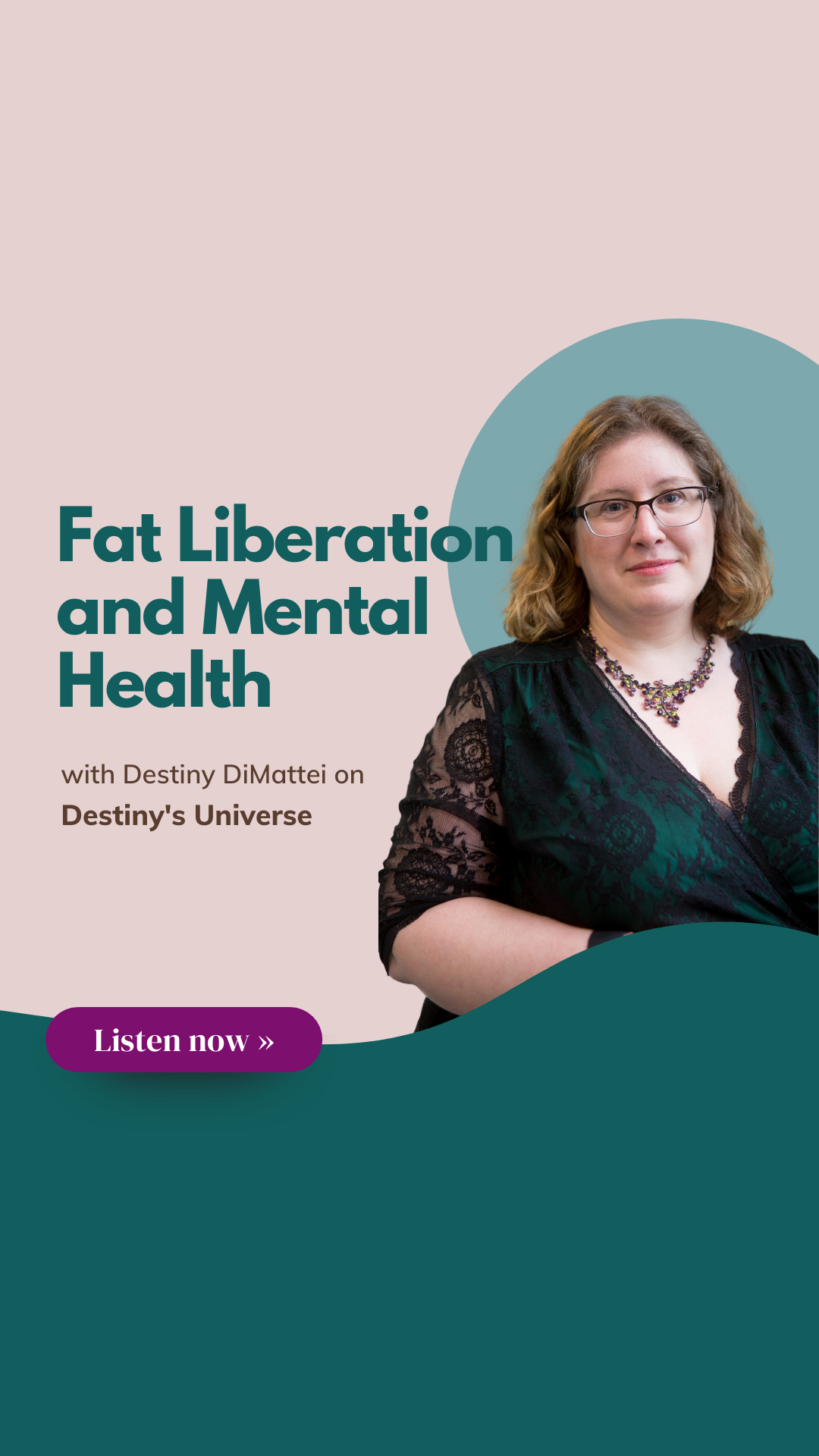
![Illustrated Art Stock: Plus Size Woman Covered with Flowers [Body Liberation Stock exclusive] - Body Liberation Photos & Stock](https://bodyliberationphotos.com/wp-content/uploads/2024/09/Illustrated-Art-Stock-Plus-Size-Woman-Covered-with-Flowers-Body-Liberation-Stock-exclusive-94337-600x600.jpg)
![Illustrated Art Stock: Plus Size Woman Twirls in a Skirt [Body Liberation Stock exclusive] - Body Liberation Photos & Stock](https://bodyliberationphotos.com/wp-content/uploads/2024/09/Illustrated-Art-Stock-Plus-Size-Woman-Twirls-in-a-Skirt-Body-Liberation-Stock-exclusive-94328-600x600.jpg)
![Illustrated Art Stock: Plus Size Woman Twirls in a Skirt [Body Liberation Stock exclusive] - Body Liberation Photos & Stock](https://bodyliberationphotos.com/wp-content/uploads/2024/09/Illustrated-Art-Stock-Plus-Size-Woman-Twirls-in-a-Skirt-Body-Liberation-Stock-exclusive-94323-600x600.jpg)
![Illustrated Art Stock: Plus Size Woman with Hands Over Breasts [Body Liberation Stock exclusive] - Body Liberation Photos & Stock](https://bodyliberationphotos.com/wp-content/uploads/2024/09/Illustrated-Art-Stock-Plus-Size-Woman-with-Hands-Over-Breasts-Body-Liberation-Stock-exclusive-94318-600x600.jpg)
![Illustrated Art Stock: Plus Size Woman with Hands Over Breasts [Body Liberation Stock exclusive] - Body Liberation Photos & Stock](https://bodyliberationphotos.com/wp-content/uploads/2024/09/Illustrated-Art-Stock-Plus-Size-Woman-with-Hands-Over-Breasts-Body-Liberation-Stock-exclusive-94313-600x600.jpg)
